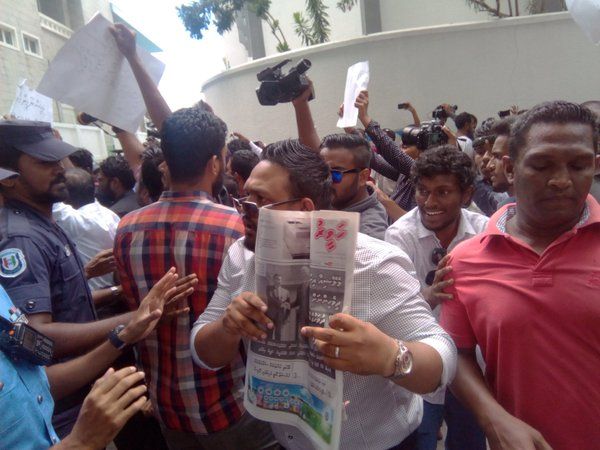High court hears challenge to work ban on ex Haveeru staff
The civil court ruling, which prohibits all former Haveeru employees from working at any other news outlet for two years, is unconstitutional and will amount to forced labour, attorneys said

24 Aug 2016, 09:00
State attorneys have challenged at the high court a two-year work ban imposed on former reporters at the Maldives’ oldest newspaper, Haveeru.
The civil court ruling, which prohibits all former Haveeru employees from working at any other news outlet for two years, is unconstitutional and will amount to forced labour, attorneys said.
The civil court and the attorney general’s office had previously clashed over the ruling after Attorney General Mohamed Anil said the order was unlawful, invalid and unenforceable. At the time, the court threatened to hold Anil in contempt of court.
The work ban followed a 2015 ruling by the high court that split the paper’s ownership. In April, the civil court ordered Haveeru’s founder Dr Mohamed Zahir Hussain to involve the new shareholders in managing and operating the paper.
Become a member
Get full access to our archive and personalise your experience.
Already a member?
Discussion
No comments yet. Be the first to share your thoughts!
No comments yet. Be the first to join the conversation!
Join the Conversation
Sign in to share your thoughts under an alias and take part in the discussion. Independent journalism thrives on open, respectful debate — your voice matters.




